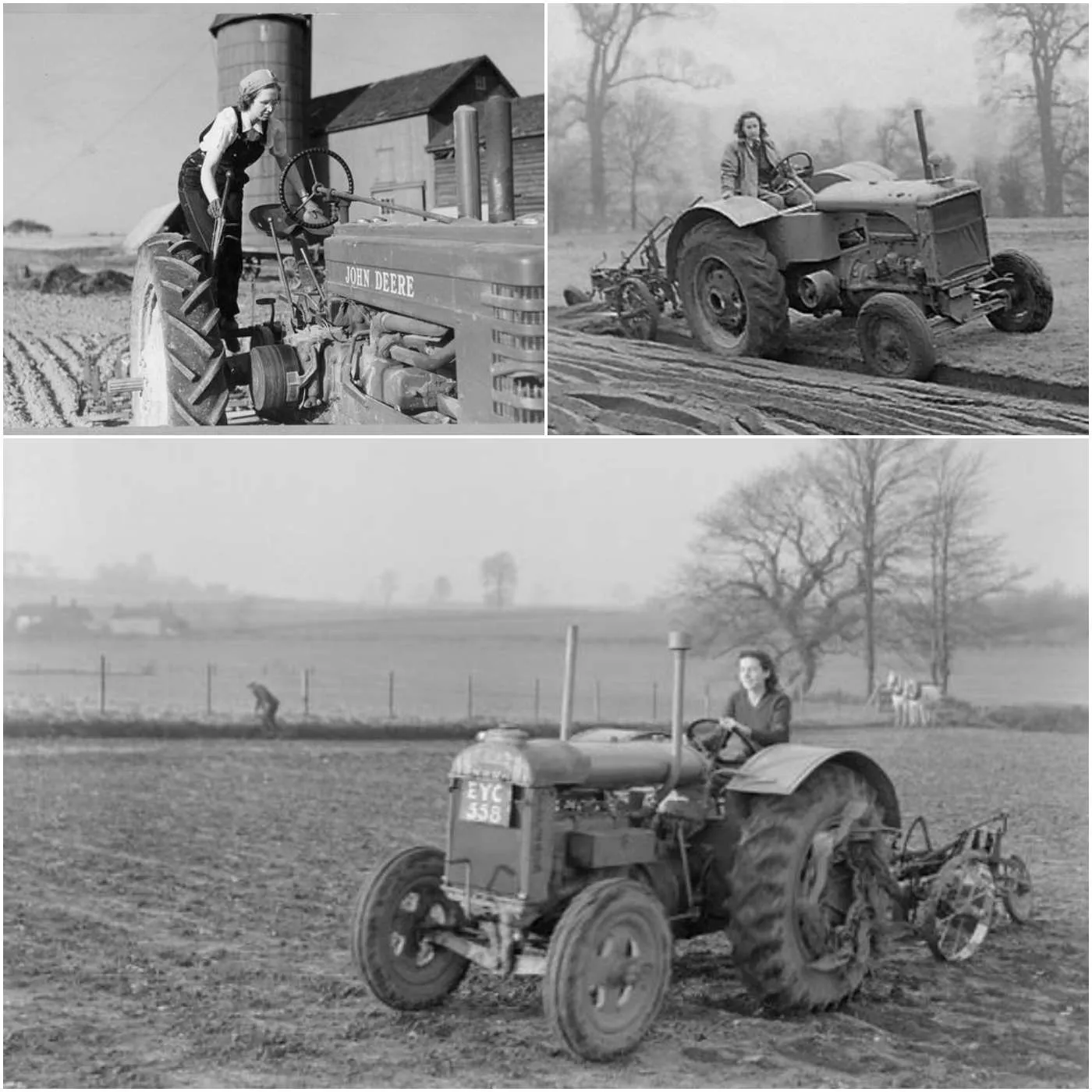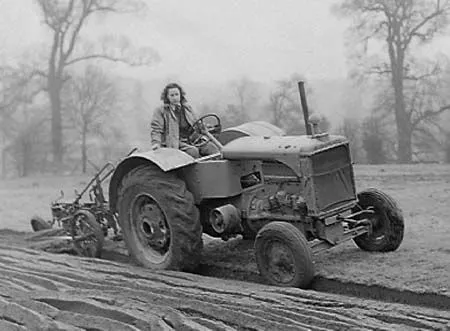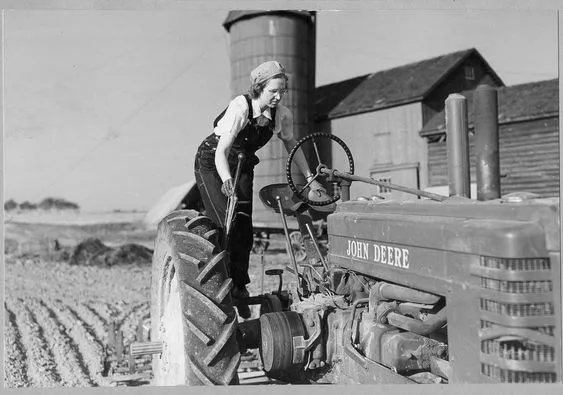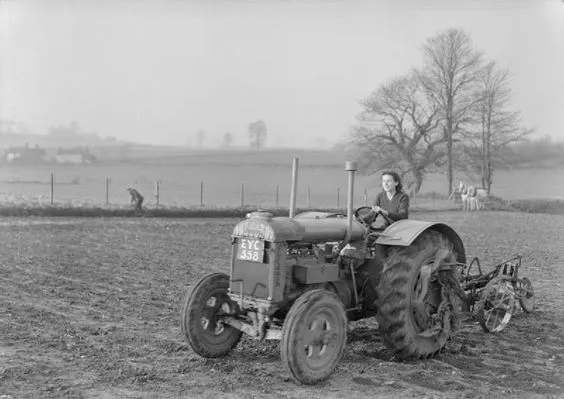Training of the Women’s Land Army at Cannington Farm, Somerset, England, Circa 1940

During the turbulent years of World War II, the Women’s Land Army (WLA) played a crucial role in supporting Britain’s agricultural sector. Established to address the severe labor shortages caused by the war, the WLA enlisted thousands of women who left their homes and jobs to work on farms across the country. One notable training site for these remarkable women was Cannington Farm in Somerset, England.
The Women’s Land Army was formed in 1939, at the onset of World War II, to ensure the nation’s food production would not falter due to the enlistment of male farm workers in the military. Women from all walks of life joined the WLA, motivated by a sense of duty and patriotism. They were affectionately known as “Land Girls,” and their contributions proved to be invaluable to the war effort.

Cannington Farm in Somerset became one of the key training centers for the WLA. Here, new recruits were taught essential agricultural skills, including plowing, sowing, harvesting, and livestock management. The training was intensive, reflecting the hard and physically demanding nature of farm work.
At Cannington Farm, the Land Girls received both theoretical instruction and practical hands-on experience. They learned to operate farm machinery, care for animals, and manage crop production. The comprehensive training program aimed to equip these women with the knowledge and skills necessary to maintain and improve agricultural productivity during the war.
Life at Cannington Farm was a blend of hard work, camaraderie, and a shared sense of purpose. The Land Girls lived in dormitory-style accommodations and followed a strict daily schedule. Despite the rigorous routine, the women forged strong bonds and developed a supportive community. Their shared experiences and challenges created a sense of unity and resilience.

The work was physically demanding and often performed under difficult conditions. The Land Girls had to adapt to the rural lifestyle, weather the elements, and manage the strenuous tasks required to keep the farms running. Nevertheless, they rose to the occasion, demonstrating remarkable determination and resourcefulness.
The contribution of the Women’s Land Army was vital to Britain’s wartime food production. Their efforts helped to ensure that the nation remained fed during a period of rationing and scarcity. The success of the WLA at Cannington Farm and other training centers across the country underscored the critical role women played in the home front war effort.
The legacy of the Women’s Land Army and the training at Cannington Farm endures as a testament to the strength and resilience of the women who served. Their work not only supported the war effort but also paved the way for greater recognition of women’s capabilities in traditionally male-dominated fields.

In the years following the war, the contributions of the Land Girls were celebrated, and their stories became an integral part of Britain’s wartime history. Monuments and memorials were erected to honor their service, and their legacy continues to inspire future generations.
The Women’s Land Army training at Cannington Farm in Somerset during the 1940s stands as a significant chapter in the history of World War II. The Land Girls’ dedication and hard work were instrumental in maintaining Britain’s agricultural output during a time of crisis. Their story is one of courage, perseverance, and the enduring impact of women’s contributions to the war effort. As we remember their sacrifices and achievements, we honor the spirit of the Women’s Land Army and the vital role they played in shaping the course of history.




 HAMILTON ESTALLA EN VIVO Y ACUSA A LA FIA DE ROBAR A FERRARI CON DECISIONES ABSURDAS!
HAMILTON ESTALLA EN VIVO Y ACUSA A LA FIA DE ROBAR A FERRARI CON DECISIONES ABSURDAS!

